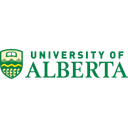Nations compete for resources amid melting ice, indigenous rights clash with development, climate impacts threaten ecosystems.
Nations compete for resources amid melting ice, indigenous rights clash with development, climate impacts threaten ecosystems.
This course examines regional development in the changing Arctic, focusing on natural resource management, community planning, and climate change adaptation. Students will investigate resource strategies across Indigenous, Nordic, Russian, and North American Arctics, and their impact on community development. The course covers Arctic geopolitics, sustainability concepts, and the challenges faced by northern communities. Participants will gain insights into Arctic Council operations, food security issues, and healthcare in remote regions. The curriculum emphasizes understanding climate change impacts and various adaptation strategies implemented by Arctic communities.
4.7
(53 ratings)
2,287 already enrolled
Instructors:
English
What you'll learn
Understand concepts in northern sustainability, geopolitics, and resource management
Explore different resource management strategies across Arctic regions
Analyze community planning and resilience-building in Arctic communities
Examine climate change impacts and adaptation strategies in the Arctic
Gain insights into Arctic Council operations and regional cooperation
Understand unique challenges in Arctic food security and healthcare
Skills you'll gain
This course includes:
2.1 Hours PreRecorded video
12 quizzes, 1 assignment
Access on Mobile, Tablet, Desktop
FullTime access
Shareable certificate
Closed caption
Get a Completion Certificate
Share your certificate with prospective employers and your professional network on LinkedIn.
Created by
Provided by

Top companies offer this course to their employees
Top companies provide this course to enhance their employees' skills, ensuring they excel in handling complex projects and drive organizational success.





There are 4 modules in this course
This course offers a comprehensive exploration of Arctic development across four modules. It begins with an introduction to the Arctic regions, key concepts in northern sustainability, and geopolitics. The curriculum then delves into resource management strategies in different Arctic areas, examining renewable and non-renewable resources. Students will study community planning and development efforts in the Arctic, focusing on building resilience in these unique environments. The final module addresses development in a changing Arctic, examining climate change impacts and adaptation strategies implemented by various Arctic communities.
Module 1: Understanding the Arctic
Module 1 · 1 Hours to complete
Module 2: Resource Management in the Arctic
Module 2 · 1 Hours to complete
Module 3: Community Management in the Arctic
Module 3 · 1 Hours to complete
Module 4: Development in a Changing Arctic
Module 4 · 1 Hours to complete
Fee Structure
Payment options
Financial Aid
Instructors
Leader in Climate Adaptation and Resilience Research
Jeff Birchall runs the Climate Adaptation and Resilience Lab in the School of Urban and Regional Planning at the University of Alberta, where he also leads the UArctic thematic network on Local-scale Planning, Climate Change, and Resilience. He has taught courses on community planning and development at the University of Alberta, Ryerson University, and the University of Canterbury. His research focuses on localized climate change impacts, particularly how these affect critical infrastructure and the built environment, as well as their implications for planning decisions.
Exploring Geographies of Exclusion and Inclusion
He is a human geographer broadly interested in the geographies of exclusion and inclusion. He approaches his work through three interrelated themes: space, knowledge, and power. To conceptualize these themes and their interrelations, he draws upon various theoretical frameworks, including governmentality theory, actor-network theory, and assemblage theory. His methodological approaches include discourse analysis, in-depth interviewing, participant observation, arts-based inquiry, and participatory action research. His work has examined (a) spaces of care, home, and work and their role in shaping the lived experiences of socially marginalized and vulnerable individuals, and (b) spaces of policy development and implementation and their role in creating healthy, enabling, and equitable urban environments.
Testimonials
Testimonials and success stories are a testament to the quality of this program and its impact on your career and learning journey. Be the first to help others make an informed decision by sharing your review of the course.
Frequently asked questions
Below are some of the most commonly asked questions about this course. We aim to provide clear and concise answers to help you better understand the course content, structure, and any other relevant information. If you have any additional questions or if your question is not listed here, please don't hesitate to reach out to our support team for further assistance.





